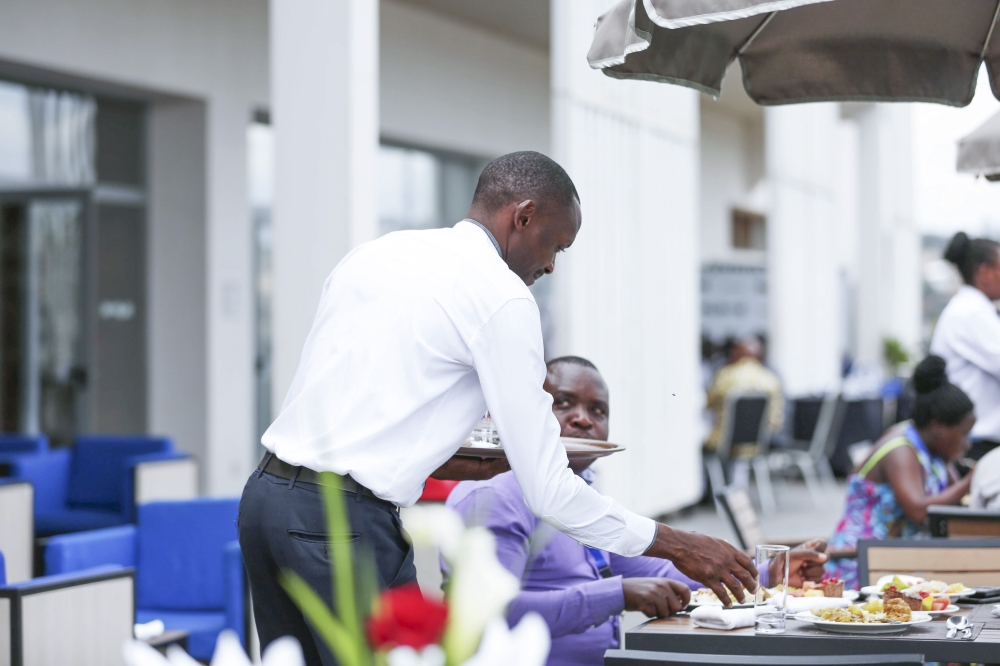The recent dismal ratings of the hotels here in this country should not dampen the hope for a brighter future. Hospitality is a service business.


The recent dismal ratings of the hotels here in this country should not dampen the hope for a brighter future. Hospitality is a service business.
It demands a grueling array of systems which should seamlessly feed into it. This is just not available locally.
Let us not forget that some time back RDB was tasked to re-engineer customer service across board.
My belief is that policy-makers at MINICOM and MINICOFIN, as well as other stakeholders, ought to take stock of all these gaps in order to come up with a defined road map to inform the country’s ascendancy to the EAC.
The report by the RDB on the country’s state of hospitality industry reflects fears that the country’s private sector is not ready for the real stresses that come with competition.
Let us envision some of the scenes likely to come out of the integration.How is Sina Gerard going to fend off the onslaught of Kenya’s Unilever which has been in existence since the early 1950s? Or how will Ameki Colour, the local paint manufacturing firm, compete with Sadolin Paints EA Ltd which has dominated Kenya’s paint industry?
These are critical questions which should occupy the minds of planners and technocrats at MINICOFIN.
The other day a reader of this column told me how a doctor advised her to drop Sina’s Agashya juice due to complications she used to suffer which the doctor attributed to the allergies she contracted from Agashya’s ingredients.
The doctor advised her to consider using Ceres Juice, an imported product, which apparently had a more stringent manufacturing process and by extension assured consumers of better health standards.
After following the advice her complications ceased.
My point here is that local competitiveness of the private sector ought to be given a fresh look.
When we make this honest assessment, like what RDB did with the local hotels, imagining our future prospects will be a less daunting undertaking because we will have engaged in taking stock of where we are and what needed to be done.
Building strategic business clusters, as advised by Prof. Michael Porter, will bring the economies of scale. Meaning that the challenges of today can be translated into the benefits of tomorrow.
I would want to reassure Rwandans that the innovation, which is being incubated now, shall have a positive implication for Rwanda’s competitive strategy now and in the future.
But all these will have to come after taking stock of the current shortcomings which RDB’s report did candidly. The Chinese ‘did it’ after their Revolution by actualizing the ‘Great Leap’ which has now placed them on top of things globally.
As we speak they stand out from the rest of the pack. I will pen off my commentary by saying that a journey of a thousand miles begins with a single step. Rwanda’s vision 2020 is an achievable dream.




